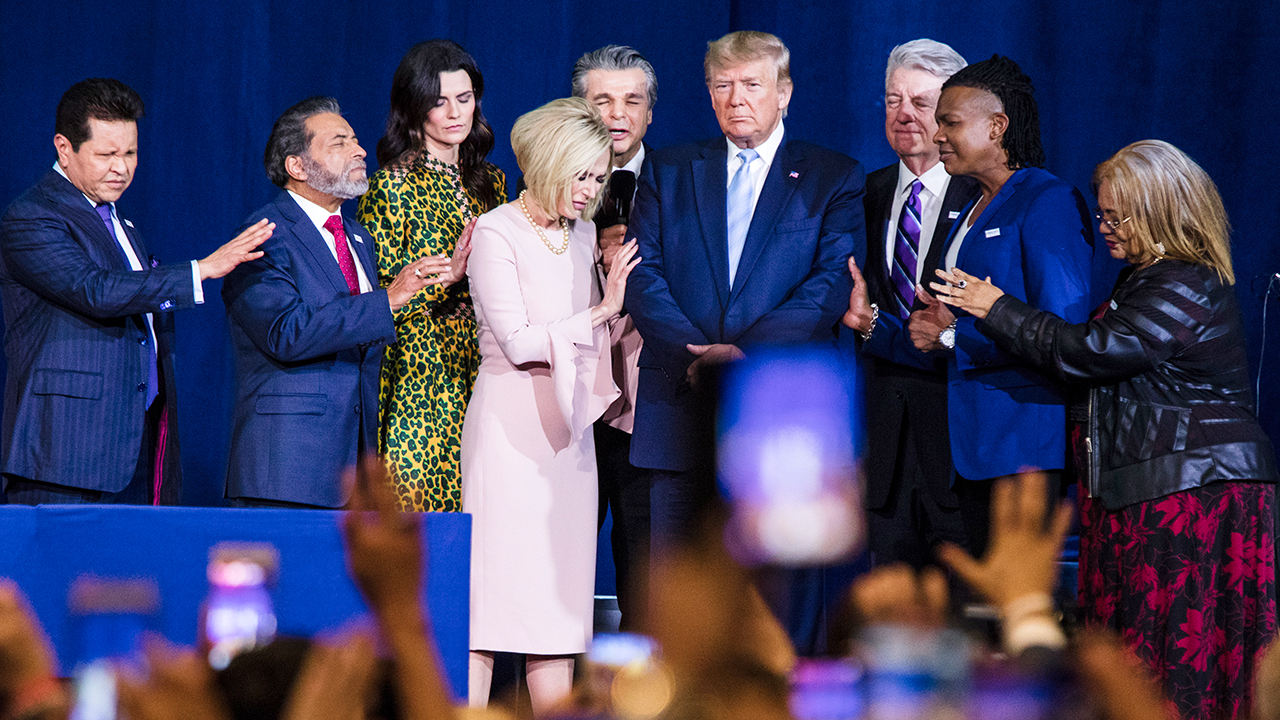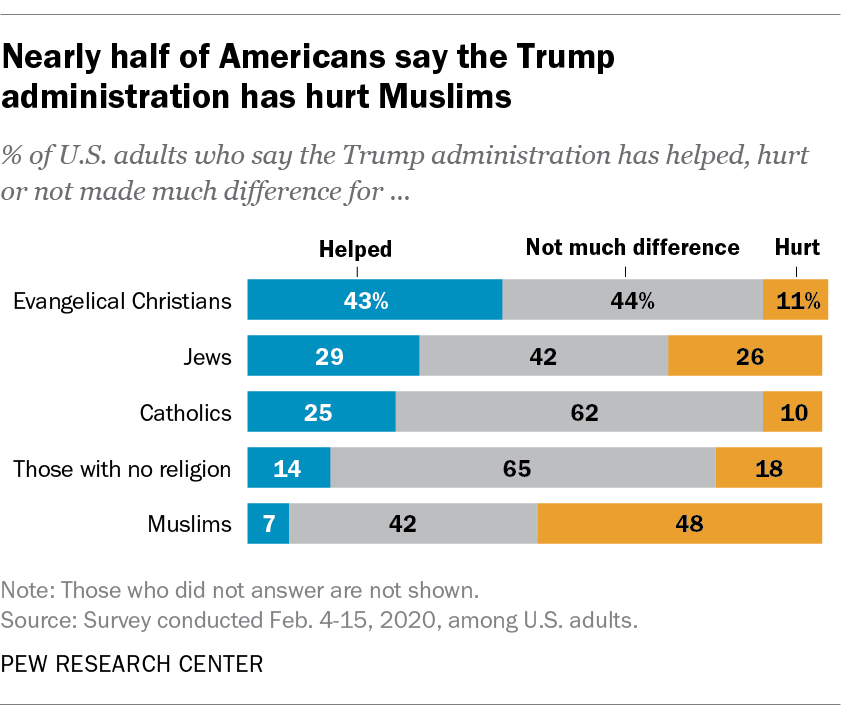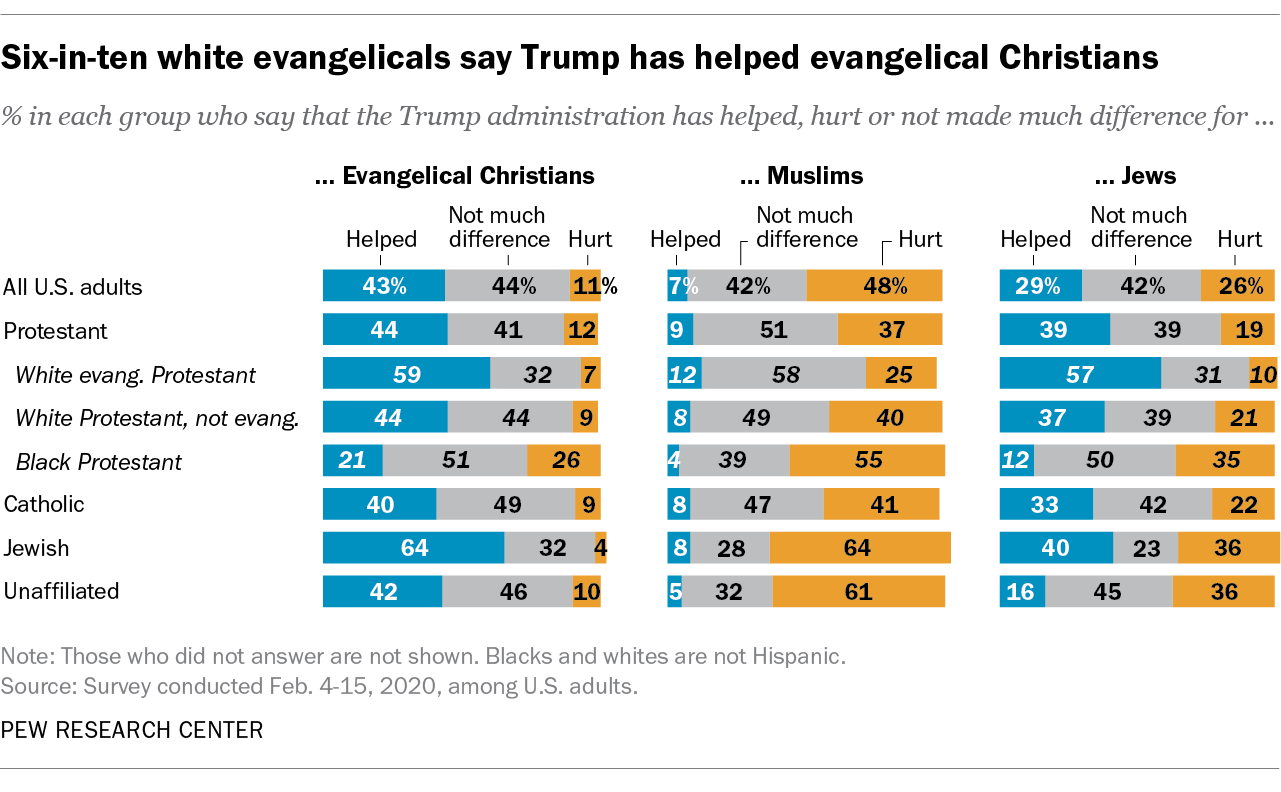
President Donald Trump has described himself as a defender of religious liberty. But how do Americans perceive the Trump administration’s effect on various religious groups?
 On balance, Americans are most likely to say the administration has helped evangelical Christians and that it has hurt Muslims, according to a February Pew Research Center survey. Opinions about the Trump administration’s impact on Jews are more mixed.
On balance, Americans are most likely to say the administration has helped evangelical Christians and that it has hurt Muslims, according to a February Pew Research Center survey. Opinions about the Trump administration’s impact on Jews are more mixed.
More than four-in-ten U.S. adults (43%) say the Trump administration has helped evangelical Christians, though a similar share (44%) say the administration has had no effect on this group. Just 11% of Americans say the Trump administration has hurt evangelical Christians.
President Donald Trump’s pronouncements and policy decisions often touch on issues of importance to particular religious groups. To assess how Americans view his administration’s impact on these groups, we surveyed 6,395 U.S. adults from Feb. 4 to Feb. 15, 2020, as part of a wider report exploring the intersection of religion and politics in the United States. All respondents to the survey are part of Pew Research Center’s American Trends Panel (ATP), an online survey panel that is recruited through national, random sampling of residential addresses. This way nearly all U.S. adults have a chance of selection. The survey is weighted to be representative of the U.S. adult population by gender, race, ethnicity, partisan affiliation, education and other categories. Read more about the ATP’s methodology.
Here are the questions used for this report, along with responses, and its methodology.
Views on this question vary by respondents’ religious affiliation. Among white evangelical Protestants themselves, most feel that the Trump administration has had a positive impact on their affairs. About six-in-ten (59%) say that the administration has helped evangelicals, while only 7% say it has hurt them. Jews (64%) are about as likely to say the Trump administration has helped evangelical Christians, while black Protestants (21%) are least likely to say this.
 The effects of Trump’s presidency on Muslims, on the other hand, are widely perceived to be negative. Americans are about seven times more likely to say that the Trump administration has hurt Muslims as they are to say it has helped them (48% vs. 7%).
The effects of Trump’s presidency on Muslims, on the other hand, are widely perceived to be negative. Americans are about seven times more likely to say that the Trump administration has hurt Muslims as they are to say it has helped them (48% vs. 7%).
Among Jews and the religiously unaffiliated – two groups that consistently identify as politically liberal and Democratic – majorities of six-in-ten or more believe the Trump administration has hurt Muslims. The religiously unaffiliated, also known as the religious “nones,” include atheists, agnostics and people who describe their beliefs as “nothing in particular.” (The survey included too few Muslim respondents to permit them to be analyzed separately.)
Views on whether the Trump administration has helped or hurt Jews are more divided. The share of U.S. adults who say the administration has helped Jews (29%) is roughly equal to the share who say it has hurt them (26%), while about four-in-ten U.S. adults (42%) say the administration has not made much of a difference for Jews.
Among Jews themselves, 40% say the administration has helped Jews, 36% say it has hurt them, and 23% say it has not made much difference. White evangelical Protestants are far more positive in their estimation of whether the administration has helped or hurt Jews, with more than half (57%) saying it has helped Jewish people, while just one-in-ten say it has hurt them. White evangelicals are the only religious group in which a majority says the administration has helped Jews.
The survey also asked respondents to assess the Trump administration’s impact on Catholics and the religiously unaffiliated. Majorities of U.S. adults say that the administration has not made much of a difference for Catholics (62%) or for the religiously unaffiliated (65%).



